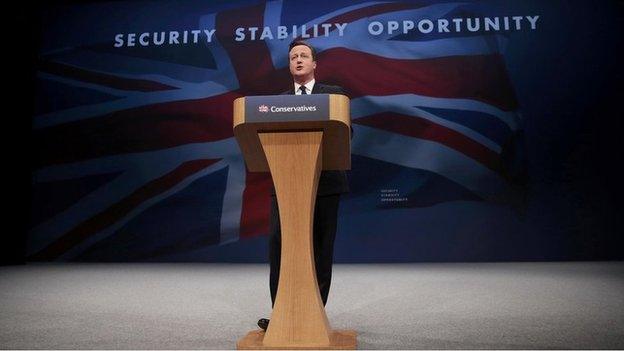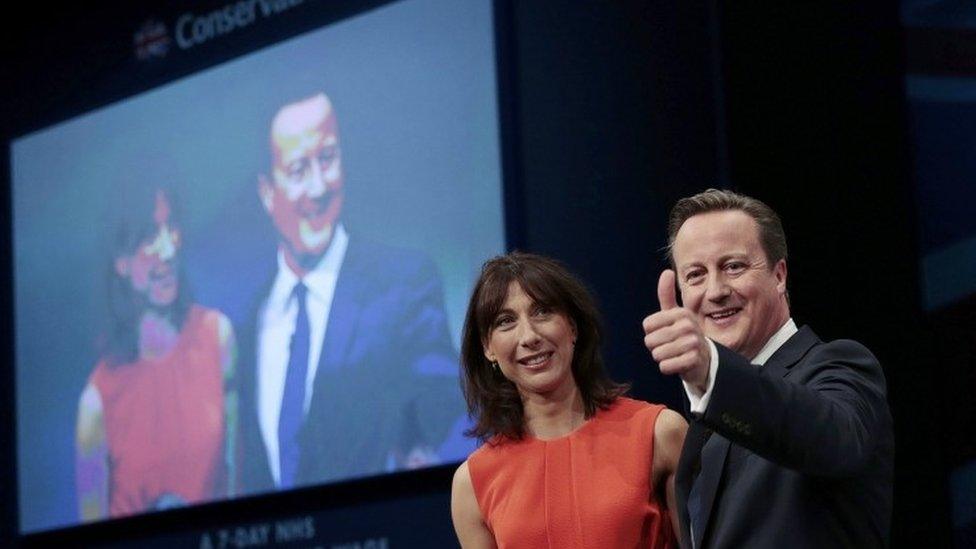David Cameron: The conference speech he always wanted to make
- Published

'Project Camborne', for this is the plan of George Osborne as well as David Cameron, is well and truly under way.
Occupy the Labour Party's former ground while it is consumed by its own issues and moving to the left.
David Cameron made promises on equality, poverty, improving the lives of children in care, getting rid of discrimination in all its forms from the platform today. There were profound echoes of his early "compassionate conservatism".
It is impossible to imagine that at a Conservative conference a decade ago the audience would have leapt to its feet to applaud the idea of equality, yet that's what has just happened in Manchester.
It is possible however to imagine a different leader, Tony Blair, giving a very similar speech in that same era.
In 2015, David Cameron wanted to show that he is still very much in charge of his party, and that he is still brimming with ideas, many of them very far from traditional Tory territory. It was the speech, his close advisers say, that he had always wanted to give as prime minister. Now, they believe, as the country's economy is recovering and he has a majority, he is free enough to do so.
And what was striking was the kind of pick and mix approach it means in practice. So he promised to send inspectors into Madrassas, Muslim schools, which may seem hardline, but in almost the same breath, he committed to fighting discrimination against those same communities.
He pleased the Conservative crowd with tributes to the armed forces and commitments on defence spending, yet emphasised the significant amount of taxpayers money sent abroad in international aid.
It was an effective speech, designed to demonstrate his authority. Unless he ends up on the losing side in the EU referendum it is hard to see him leaving No 10 until the next general election is very near.
But this project will meet obstacles. There was little red meat for the traditional Conservative audience - hardly anything on controlling borders, lowering taxes, or even stern words on the EU. Compassionate conservatism wasn't enough for his own party in the first few years of his leadership, and he eventually said goodbye to the huskies and hugging hoodies.
And outside the party, the Tories will be met with challenges over whether the rhetoric and the reality matches. Can you really commit to improving the lives of children in care if social service budgets are being hacked back?
Can you really turn around the lives of prisoners if jails are overcrowded and don't have enough staff? Most immediately, can you really say you are on the side of the working poor when some of them will lose out significantly due to changes to tax credits?
Internally and externally one speech will never satisfy all those questions. But as a political moment this was a test of the prime minister's mettle - one he passed.
- Published7 October 2015
